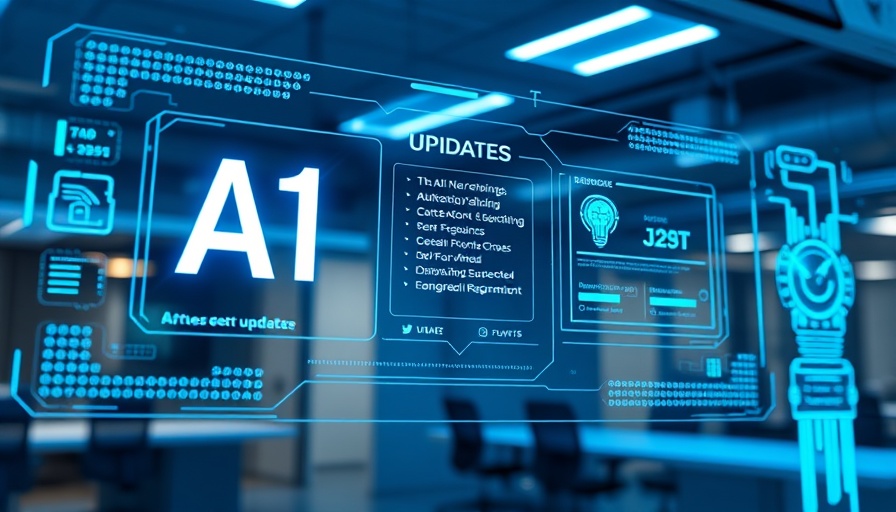
Unlocking Insights from the Daily Search Forum: A Recap
On August 8, 2025, the digital marketing community saw significant developments in search engine technology and marketing tools, highlighted by OpenAI's release of GPT-5 and its integration with Microsoft Copilot. These advancements prompted discussions on how they could affect small business owners and marketers—who are always on the lookout for ways to enhance their digital strategies. As professionals in digital marketing, staying informed about these updates could be the key to gaining a competitive edge.
Understanding the Impact of GPT-5 on Marketing
OpenAI has made waves in the marketing world by introducing GPT-5, now available for use in Microsoft Copilot applications. While many are familiar with AI writing assistants, the potential of GPT-5 goes beyond generating text; it includes sophisticated analytics and targeting capabilities. For small business owners and agencies, harnessing tools like Microsoft Copilot could streamline content creation and enhance customer engagement strategies.
Bing's Webmaster Tools Gains New Features
Another significant update during this search forum recap is the expansion of Bing Webmaster Tools. Bing now offers up to 24 months of historical data, which can empower marketers to conduct deeper analyses of their website traffic and trends. Such metrics allow small businesses to make informed decisions based on user behavior, helping them to tailor their strategies for better performance.
Google Ads: Enhanced Tools for Performance Max Campaigns
Google's updates to Performance Max have also caught the attention of marketers. The introduction of campaign-level negative keyword lists and enhanced demographic targeting enables agencies to fine-tune their advertising efforts. By leveraging these new features, businesses can allocate resources more strategically, focusing on conversions that matter the most. The era of cookie-based tracking is diminishing; therefore, maximizing every opportunity to communicate effectively with target audiences is essential.
The Rise of Google’s AI Mode
Google's attempts to deepen the user experience with the inclusion of sections such as “People Also Search For” in their AI Mode results are noteworthy. This feature not only provides users with additional relevant queries but also opens new avenues for marketers to explore content strategy and SEO tactics. Understanding what related questions consumers are asking can inform content development strategies and enhance search engine visibility.
Analytics: Misplaced Code and SEO Implications
The question of whether having Google Analytics code on the wrong site affects SEO is a common concern among marketers. Fortunately, Google affirmed that it does not impact search rankings, providing relief to anxious site owners. Familiarity with how analytics operate can help businesses avoid creating unnecessary panic around minor issues.
Preparing for Future Changes in Search Marketing
Given the fast-paced nature of digital marketing, it’s crucial for small business owners to stay ahead of these trends. The conversation surrounding AI tools like GPT-5, enhanced reporting features in Google Ads, and the continuous evolution of platforms like Bing and Google highlight the importance of adapting strategies to maximize outcomes. Looking ahead, marketers who can effectively integrate these advancements into their operations will likely outperform their peers.
This week’s recap demonstrates a definitive shift towards AI-driven solutions in digital marketing, emphasizing efficient customer engagement and data utilization. For those engaged in marketing or owning small businesses, these insights are invaluable for not only understanding current trends but also for shaping future strategies.
As these tools continue to evolve, the question isn’t whether to adapt, but how quickly can businesses embrace these innovations to drive growth and better connect with their audience? The digital frontier awaits innovation and effective application of these advanced tools.
In conclusion, it is critical for small business owners and marketers to stay informed about the latest developments in AI and marketing practices. To maximize your marketing impact and ensure your strategies resonate with your audience, consider integrating these new tools and insights into your daily operations.
 Add Row
Add Row  Add
Add 




Write A Comment